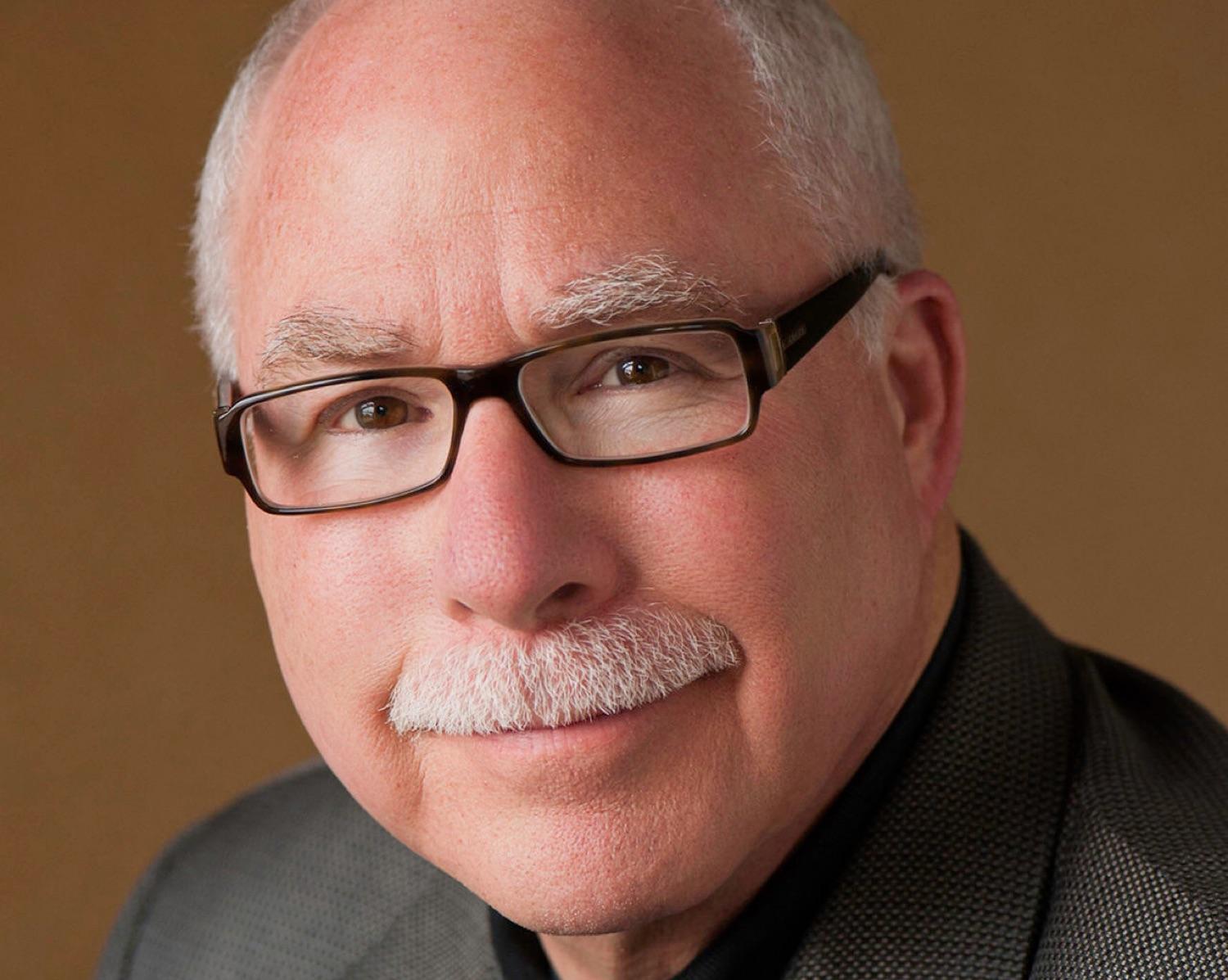What Is Thought Leadership?
Curated from: wgu.edu
Ideas, facts & insights covering these topics:
20 ideas
·2.27K reads
8
Explore the World's Best Ideas
Join today and uncover 100+ curated journeys from 50+ topics. Unlock access to our mobile app with extensive features.
Aren’t All Business Leaders “Thought Leaders”?
Thought leadership is the expression of ideas that demonstrate you have expertise in a particular field, area, or topic. Many executives and business leaders strive to become a thought leader in their respective fields. It takes dedication, patience, strategy, and education. Most thought leaders not only have a command of their subject area, they are passionate about it and eager to share their knowledge with others to benefit a company, organization, or cause.
32
312 reads
Aren’t Influencers Thought Leaders?
Utilizing content marketing, social media, and other means to increase your authority and influence are key for successful thought leadership. But, the definition of thought leadership is innovative thinking full of insight, information and inspiration, which is why many thought leaders are invited to speak at conferences and graduations, why they have many social media followers, why they become LinkedIn experts, and why their content marketing is widely followed.
31
190 reads
What Is The Value Of Thought Leadership?
Expertise, insight, and a valuable perspective are elements that lead to thought leadership status. To be an effective thought leader is to possess a depth of knowledge no one else has. There are several key benefits to this. It:
- Qualifies you as a reliable source of insight and information that can successfully influence others
- Boosts your industry presence and builds your brand
- Establishes credibility in your field
- Encourages you to focus on what you know best and look for opportunities to express it frequently
- Offers unique guidance and inspires innovation
- Encourages forward thanking
32
146 reads
An Example Of A Real Thought Leader
Steve Jobs believed that “you always had to be a little different to buy an Apple computer.” This thought inspired Apple’s “Think Different” advertising campaign, featuring real “geniuses” whose “crazy” ideas had a profound impact on the world. Many CEOs like Jobs are known for thought leadership because of their authority in an area, their ability to define important terms for the future, and more.
30
169 reads
An Example Of A Real Thought Leader
Fran Blanche fancies herself a “geek girl who makes stuff.” She had the foresight to combine her engineering background and “goofball” personality in weekly how-to videos (“Fran in the Lab”) that feature her fiddling with electronic components—something she knows like the back of her hand. Fran’s formula works. She’s amassed (to date) 242,000 subscribers to her YouTube channel. Co-founders and founders of organizations and groups often fit the definition of thought leadership because they are changing the area where they have experience.
30
140 reads
An Example Of A Real Thought Leader
An entry-level assistant for an online lifestyle publication expresses an interest in writing about fashion. His editor assigns him small pieces at first then much larger ones after the assistant’s writing skills and expertise blossom. He ultimately lands his own weekly fashion column, which helps boost readership by 30%, and gains him a huge following as a thought leader in the fashion industry.
29
136 reads
Who Should Produce Thought Leadership Content?
Thought leaders are the informed opinion leaders in their field of expertise. But at what point can an individual or business consider themselves a thought leader and start producing thought leadership content? It takes time, skill, and tenacity to be able to be considered a recognized thought leader. For example, Steve Jobs didn't become a thought leader overnight. First he had an idea, and worked to hone it for years. He built a company that slowly over time, started to be successful. It was then that he was able to step into a thought leadership role and inspire people with his story.
30
99 reads
You Better Work, Thought Leader
You'll need to have more than a LinkedIn profile to become a thought leader. You'll need to have proven your experience and understanding in a field in tangible ways to show to others that you are a voice to listen to.
You don't have to be Steve Jobs to become a thought leader. You can start researching and developing yourself in your current field. You can start writing articles and sharing them with others to get opinions, build a following on social media, and slowly begin proving yourself as an expert in your field.
30
98 reads
Thought Leadership Strategy
To establish yourself as a trusted figure in any field takes a lot of dedication, hard work, and time. Thought leaders are continually building their experience and credibility. Consider the principles of leadership and the following best practices of today’s successful thought leaders as you build your own leadership career.
29
101 reads
Enunciate Your Area Of Expertise
Clearly defining your niche or specific area of expertise can help you build your brand, establish credibility in your field, and raise your profile. For example, a garden author focuses her work entirely on what she knows best—succulents—and, as a result of the clout she’s built within the industry, is often invited to speak at major home and garden shows and write for popular publications.
29
90 reads
Go Deep On A Few Topics vs. Many
It’s perfectly fine to share your opinion on a wide variety of subjects to show you are a present, well-rounded professional. But the beauty about thought leadership is that success can come from streamlining your focus to a single specialty. Practicality and common sense can attest to the fact that covering too many topics can be much harder to manage and risks creating an impression of being scatterbrained or unfocused. Who wants a leader whose thoughts are “all over the place”?
29
89 reads
Keep Up With The Latest
The best thought leaders continually stay current on what’s happening in their fields, which is especially crucial in faster-evolving industries like technology. This gives them the opportunity to recognize and analyze patterns and trends in the market, which can inspire strategies for achieving business solutions. Keeping up with the latest industry news can also spur unique insight that the business leader can use to the company’s advantage.
29
86 reads
Listen To And Listen In
Unafraid to admit what they don’t know, true thought leaders make a conscious effort to understand and listen to what others have to say. This is a tried-and-true way to stay connected with peers in your field and expand your knowledge on a topic. The more people a leader listens to increases the probability of more ideas being shared, which is usually a good thing. In addition to harnessing the power of “listening to,” effective leaders also recognize the value of inviting others to “listen in.”
30
78 reads
An Example Of Listening In
A CEO for a Fortune 500 company invites rank-and-file employees to join her and listen in on meetings where senior management give her business updates. Her thinking behind this? It encourages employees to share their opinions, increases the chances of a good idea being expressed, and creates a greater culture of inclusion and transparency that makes employees feel they are valued.
29
85 reads
Draw Inspiration From Multiple Sources
While it’s true that a thought leader’s success can be attributed to a razor-sharp focus in a particular area, it’s important to draw from multiple sources within this area to increase the chances of a good idea springing up. According to Simon Sinek, best-known for his “Three Golden Circles” TED Talk, “leaders who can connect information from a number of sources are generally well positioned to create ideas that are informed by the needs of the marketplace. Credibility combines that expertise with a measure of humility, honesty, and an appreciation for the human aspect of leading people.”
29
79 reads
Consider The Audience Test
Clients, prospects, the business, and the media are your audiences, so use them as a barometer of how effective your thought leadership content is. If they’re not convinced, it’s time to revisit your approach to idea generation.
- Clients. Make your content more about them than what you’re offering.
- Prospects. Be the first to find emerging themes and bring insights to the table that nobody else has.
- The business. Align your content with the expertise you offer.
- The media. Try your ideas out with a journalist while you’re in the development phase.
30
74 reads
The Challenges Of Thought Leadership
Like all approaches to leadership, thought leadership has drawbacks. One potential pitfall may be a limited perspective. For instance, if business leaders are overly rigid or too focused on their areas of expertise, they risk missing out on ideas that could help support their endeavors. Also, since thought leaders tend to put themselves out there and often introduce a less popular way of thinking, they are bound to have detractors. A challenge? Certainly, because they need to be prepared to argue and defend their ideas.
29
76 reads
Thought Leadership Empowers Both The Leaders And The Led
It’s an honorable goal for someone to aspire to be a thought leader.Online classes and degree programs provide an excellent way for business leaders and marketers, for instance, to expand their knowledge and perhaps specialize in a new related discipline. After all, being recognized as a go-to authority—a trusted source for one’s ability to inspire others with their ideas and bring those ideas to life—is empowering on its own and even more empowering when it motivates thought leaders to try and replicate their successes.
29
69 reads
A Career In Thought Leadership
Genuine thought leaders are influencers somewhere, but not necessarily on social media or an online platform. They use social media; they are not born of them.
They can be quite a popular breed of leader because they are driven to stretch people’s minds, encouraging and even daring them to think deeply, differently, and in one direction: Forward.
If, like them, you dare to think deeply, differently, and forward, thought leadership is definitely the way to have an incredible, potentially game-changing career.
29
74 reads
"A thought leader is recognized by peers, customers and industry experts as someone who deeply understands the business they are in, the needs of their customers and the broader marketplace in which they operate. They have distinctively original ideas, unique points of view and new insights."
JOEL KURTZMAN
30
83 reads
IDEAS CURATED BY
CURATOR'S NOTE
For those looking to be thought leaders and for those looking to find thought leaders, here is what a thought leader is, before this term too gets usurped and defamed. Spoiler alert: thought leader is something others call you; if you call yourself a thought leader, you almost certainly aren’t one.
“
Xarikleia 's ideas are part of this journey:
Learn more about career with this collection
How to set achievable goals
How to create and stick to a schedule
How to break down large projects into smaller manageable tasks
Related collections
Similar ideas
15 ideas
8 ideas
Leadership disrupted: Pushing the boundaries
www2.deloitte.com
2 ideas
What is courageous leadership?
wework.com
Read & Learn
20x Faster
without
deepstash
with
deepstash
with
deepstash
Personalized microlearning
—
100+ Learning Journeys
—
Access to 200,000+ ideas
—
Access to the mobile app
—
Unlimited idea saving
—
—
Unlimited history
—
—
Unlimited listening to ideas
—
—
Downloading & offline access
—
—
Supercharge your mind with one idea per day
Enter your email and spend 1 minute every day to learn something new.
I agree to receive email updates

